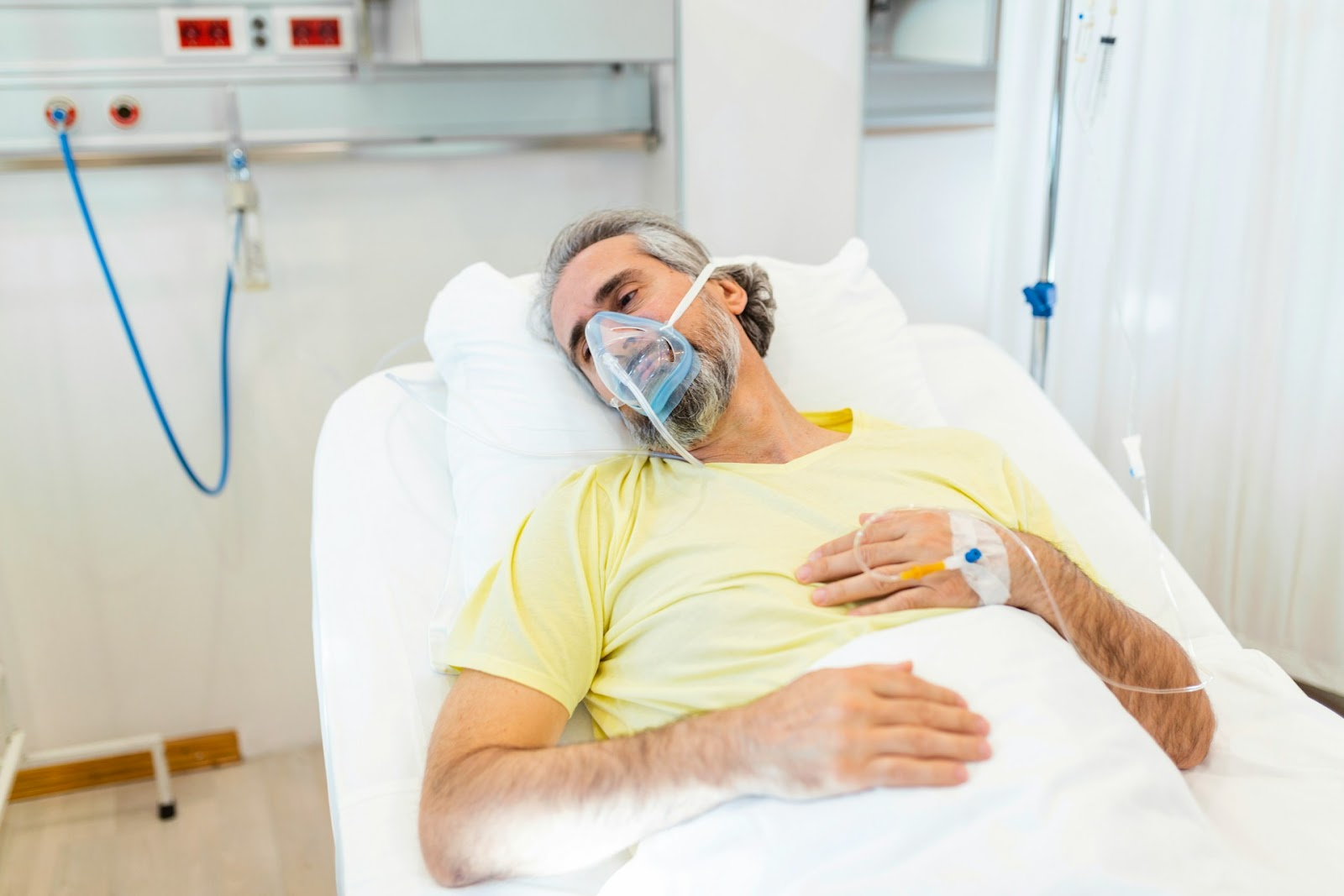"Hangxiety," a combination of "hangover" and "anxiety," refers to the anxious feeling some people experience after consuming alcohol. This phenomenon can leave you feeling jittery, uneasy, and overwhelmed the day after drinking. At Livity Wellness, we understand how debilitating hangxiety can be, and we offer various strategies and treatments, including IV therapy, to help manage these symptoms. In this comprehensive guide, we'll explore what hangxiety is, its causes, and effective ways to manage it.
Understanding Hangxiety

What is Hangxiety?
Hangxiety is the feeling of anxiety that occurs during or after a hangover. It can manifest as nervousness, restlessness, and a general sense of unease. Unlike typical hangover symptoms like headaches and nausea, hangxiety affects your mental and emotional well-being explicitly.
Common Symptoms of Hangxiety
- Nervousness: Feeling on edge or excessively worried.
- Restlessness: Difficulty sitting still or feeling calm.
- Irritability: Becoming easily agitated or frustrated.
- Overthinking: Dwelling on negative thoughts or past actions.
- Rapid Heartbeat: Experiencing a fast or irregular heartbeat.
- Panic Attacks: Sudden episodes of intense fear or discomfort.
Why Does Hangxiety Happen?
Several factors contribute to anxiety, including the physiological and psychological effects of alcohol:
- Dehydration: Alcohol is a diuretic, leading to dehydration, which can exacerbate anxiety.
- Electrolyte Imbalance: Alcohol consumption affects your electrolyte levels, which can impact brain function and mood.
- Blood Sugar Fluctuations: Alcohol can cause blood sugar levels to spike and then drop, leading to feelings of anxiety.
- Sleep Disruption: Alcohol interferes with sleep quality, leaving you tired and more prone to anxiety.
- Neurotransmitter Imbalance: Alcohol affects neurotransmitters like serotonin and dopamine, which regulate mood and anxiety levels.
Effective Ways to Manage Hangxiety

Hydrate and Replenish Electrolytes
One of the easiest ways to manage anxiety is to stay well-hydrated. Drink plenty of water and consider electrolyte-rich beverages like sports drinks or coconut water to help restore balance.
Eat Nutritious Foods
Eating a balanced meal can help stabilize blood sugar levels and give your body the nutrients needed to recover. Focus on foods rich in complex carbohydrates, proteins, and healthy fats.
Get Plenty of Rest
Quality sleep is essential for recovery. Try to get as much rest as possible to allow your body and mind to heal from the effects of alcohol.
Practice Deep Breathing Exercises
Deep breathing exercises can help calm your nervous system and reduce feelings of anxiety. Try inhaling deeply through your nose for a count of four, holding your breath for four counts, and then exhaling slowly through your mouth for four counts.
Engage in Light Physical Activity
Gentle exercise, such as walking or yoga, can help reduce anxiety and improve mood by releasing endorphins. Avoid intense workouts, as they can exacerbate hangover symptoms.
Avoid Caffeine
While it might be tempting to reach for a cup of coffee, caffeine can increase anxiety levels and exacerbate dehydration. Opt for herbal teas or water instead.
Consider IV Therapy
IV therapy can be an effective way to manage anxiety by providing immediate hydration and essential nutrients directly into your bloodstream. At Livity Wellness, we offer customized IV therapy treatments designed to alleviate hangover symptoms, including anxiety.
How IV Therapy Can Help Manage Hangxiety

What is IV Therapy?
IV (intravenous) therapy involves delivering fluids, electrolytes, vitamins, and other essential nutrients directly into your bloodstream through an IV drip. This method allows for rapid absorption and ensures that your body receives nutrients without any loss through the digestive system.
How IV Therapy Works
During an IV therapy session, a healthcare professional inserts a small catheter into a vein in your arm. The IV bag containing the hydration solution is then connected to the catheter, allowing the fluids and nutrients to flow directly into your bloodstream. The process typically takes 30 to 60 minutes, and you can relax comfortably during the session.
The Components of IV Therapy for Hangxiety
- Fluids: Normal Saline solution helps replenish lost fluids and maintain proper hydration.
- Electrolytes: Essential minerals like sodium and magnesium can help regulate various bodily functions, including muscle contractions and nerve signaling.
- Vitamins: Depending on your specific needs, the IV solution can include vitamins such as B-complex and Vitamin C to boost your immune system and overall health.
- Amino Acids: These building blocks of protein can help support muscle repair and recovery.
- Antioxidants: Compounds like Glutathione and Vitamin C help combat oxidative stress and support detoxification.
Benefits of IV Therapy for Hangxiety
- Immediate Hydration: IV therapy provides rapid hydration, which can quickly alleviate dehydration-related anxiety.
- Enhanced Nutrient Absorption: The nutrients delivered through IV therapy are absorbed more efficiently than those taken orally, providing immediate relief.
- Reduced Anxiety: Electrolytes and vitamins in the IV solution can help stabilize mood and reduce anxiety levels.
- Improved Energy Levels: IV therapy can provide a quick energy boost, helping you feel more alert and less tired.
- Enhanced Immune Function: The immune-boosting vitamins and antioxidants can help your body recover.
Customized Treatments
At Livity Wellness, we offer customized IV therapy treatments tailored to your needs. Whether you're dealing with anxiety or other hangover symptoms, our team can create a personalized IV solution to help you feel better quickly.
Is IV Therapy Safe?
Safety Considerations
IV therapy is safe when administered by trained healthcare professionals. At Livity Wellness, our team follows strict safety protocols to ensure your comfort and well-being during the treatment.
Potential Side Effects
While IV therapy is safe for most people, some potential side effects can include:
- Bruising or Swelling: Although rare, minor bruising or swelling at the injection site may occur and usually resolves within a few days.
- Allergic Reactions: Although rare, some people may experience allergic reactions to the components of the IV solution. Our team will review your medical history to minimize this risk.
- Infection: Proper sterilization and insertion techniques significantly reduce the risk of infection.
Who Should Avoid IV Therapy?
IV therapy is not suitable for everyone. Individuals with certain health conditions, such as kidney disease or heart failure, should avoid IV therapy unless recommended by a healthcare provider. Pregnant or breastfeeding women should also consult with their doctor before undergoing IV therapy.
How to Get Started
Book a Treatment
To get started with IV therapy, book a treatment with our expert medical team at Livity Wellness. Upon arrival at your location, our highly trained medical staff will assess your symptoms and design a customized IV therapy plan tailored to your needs. This initial step is crucial in ensuring you receive the best care possible.
Tailored Treatment Plan
Based on the assessment, we will design a tailored treatment plan that includes the essential fluids, electrolytes, vitamins, and medications needed to cure your hangover nausea quickly and effectively. This personalized approach ensures your treatment aligns with your unique needs and goals.
Convenient and Comfortable Sessions
Our mobile IV therapy services ensure that you receive the treatment in the comfort of your home. Our experienced medical team will monitor the entire session, ensuring your safety and comfort. This convenience allows you to focus on resting and recovering while we care for the rest.
Real-Life Testimonials
"I used to dread the day after drinking because of severe anxiety. The IV therapy from Livity Wellness was a game-changer. I felt hydrated, calm, and back to my normal self much faster than usual." - Emily T.
"Hangxiety would ruin my weekends until I tried the IV therapy. It helped me feel more relaxed and less anxious. Highly recommend it for anyone struggling with post-drinking anxiety." - Brian K.
More Tips for Preventing Hangxiety

Drink in Moderation
The best way to prevent anxiety is to drink alcohol in moderation. Stick to the recommended guidelines of no more than one drink per day for women and two drinks per day for men.
Stay Hydrated While Drinking
Alternate alcoholic beverages with water to stay hydrated and reduce the risk of hangxiety. Aim to drink a glass of water for every alcoholic drink you consume.
Eat Before Drinking
Eating a nutritious meal before drinking can help slow the absorption of alcohol and reduce its impact on your blood sugar levels.
Avoid Mixing Alcohols
Stick to one type of alcohol to minimize the risk of hangover and anxiety. Mixing different types of alcohol can exacerbate symptoms.
Listen to Your Body
Pay attention to how your body reacts to alcohol. If you start to feel anxious or uncomfortable while drinking, it's a sign to slow down or stop.
Practice Mindful Drinking
Be mindful of your alcohol consumption and make conscious decisions about when and how much to drink. This can help you enjoy alcohol without experiencing the adverse effects of hangxiety.
Long-Term Benefits of Regular IV Therapy
Improved Hydration
Regular IV therapy treatments can help maintain optimal hydration levels, reducing the risk of dehydration-related anxiety.
Enhanced Nutrient Levels
Consistent IV therapy can ensure your body receives the essential vitamins and minerals to support overall health and well-being.
Better Mental Clarity
Regular IV therapy can improve mental clarity and reduce brain fog, helping you feel more focused and alert.
Increased Energy Levels
By providing essential nutrients, regular IV therapy can help maintain stable energy levels and reduce feelings of fatigue.
Overall Wellness
Regular IV therapy treatments can improve overall wellness by supporting your body's recovery processes and enhancing your immune system.
Links Worth Checking Out
- Centers for Disease Control and Prevention: Alcohol and Public Health: Learn more about the effects of alcohol from the CDC.
- National Institute on Alcohol Abuse and Alcoholism: Discover more about alcohol-related health issues from the NIAAA.
.png)









